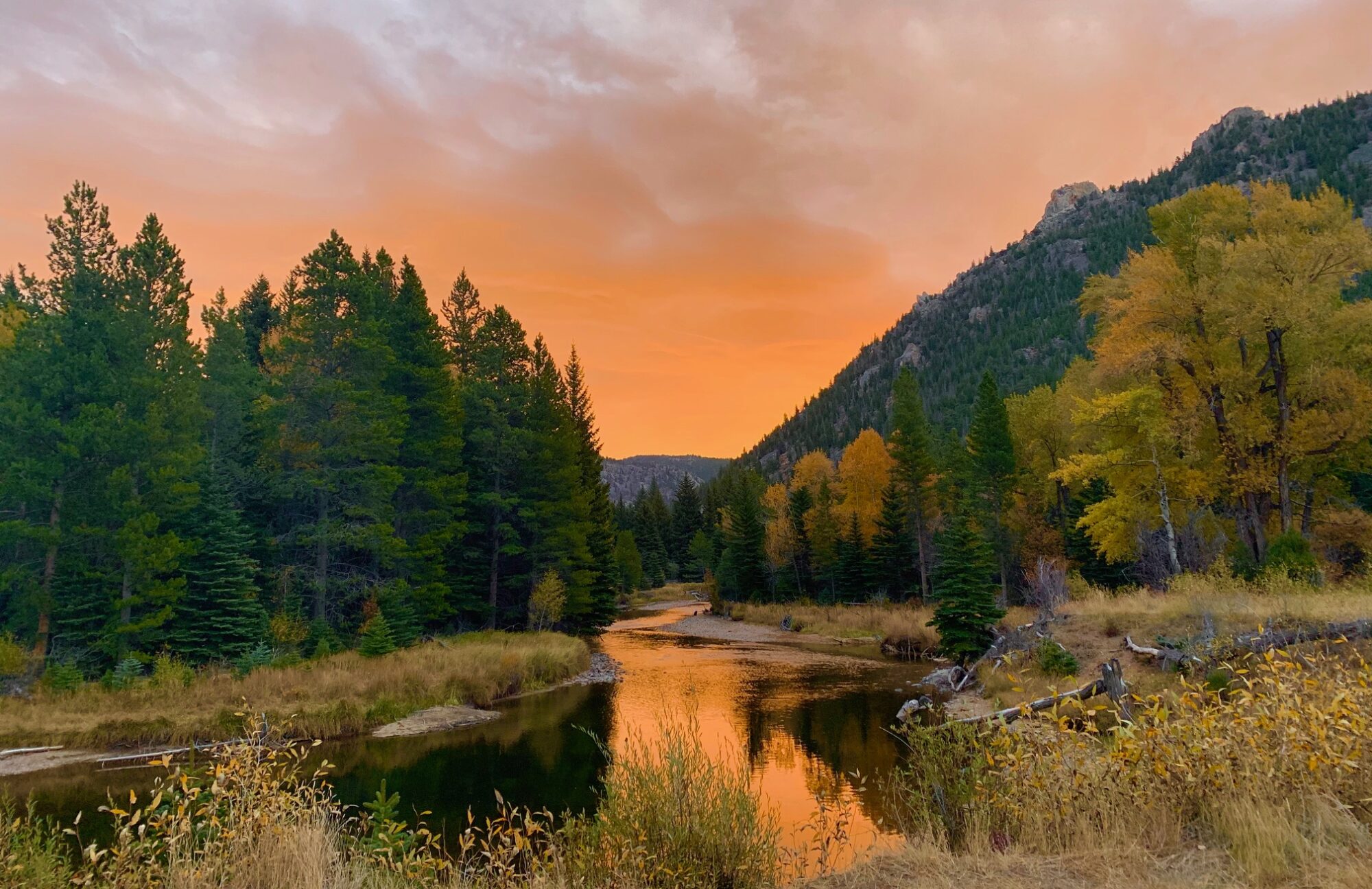“Vines will be planted, corn will spring up, a whole growth of new crops; and people will still fall in love in vintages and harvests yet to come. Life is eternal; it is a perpetual renewal of birth and growth.” ~ Emile Zola
For about two weeks in late June the garden off the cabin deck explodes in the brilliant red-orange shades of the Papaver rhoeas, common poppies whose seeds were first sown in that spot by my grandfather years ago. I imagine him scratching the soil, strewing a few handfuls of seed indiscriminately, perhaps without expectation. But life finds a way and these seeds took to the soil, imbibing on the ample sunshine and rain, prospering in the mountain air. That few specks of seed did their reproductive thing so well that there are now hundreds of blossoms. (Maybe it has something to do with their proximity to the leach field from the septic tank! ) It is a panoply of the brightest, splashiest spectacles of color, spraying vivid hues into the cosmos. A magnificent show that moves emotions, the big bold stalks bending under the weight of full grown blossoms five inches wide.
And then it ends. Suddenly…done. By early July the show is over, the blossoms lose color and drop leaving behind stems and leaves that fairly yellow as the summer heat persists. When the last petal of the last bloom gives way to gravity the poppy bed holds no promise for another ten months when in spring, even as snow cover clings to the garden bed, the first green leaves appear at the base of the old stalks.
As summer perspires away to fall the poppy pods which I have allowed to hang suspended have dried into brown rattles, some popping open to spew seeds. I harvest a few each year, carrying them to outlying areas of the yard and sowing them as my grandfather did, without expectation. Gradually and somewhat reluctantly these new stands take hold with a few stalks at first then proliferate over the years.
At the height of the spectacle people have observed (tongue in cheek) that there is a large enough crop to open a robust opium operation. Seems complicated and I have little motivation to do so. I’d rather just go fishing, honestly. It’s a better high anyway.
Prior to the first frost I cut the stalks down, clearing the poppy bed down to the nub. I rake the field to gather the stalks and either toss them in a mulch heap or just burn the piles in place, depending on my mood. Fire is fun and the ash serves as a soil amendment to prop up the next crop, although that’s just my theory. It’s really more about satisfying the pyromaniac in me.
As winter melts into early spring the green leaves begin to appear at the base, growing steadily over a few weeks as the stalks ascend skyward while the flower buds form again. As if on cue each year the buds begin to crack their casing in response to the lengthening daylight. Then with the summer solstice as their prompt the blooms surge forth laughing and dancing their jig for another fortnight.
I wonder if it’s all worth it. I make a significant investment for the short-lived perennial payoff, as beautiful as it is. It’s a fair amount of work for a mere two week festival. Why not simply dig out all the poppies and replace them with plants that bloom as prolifically but for a longer period of time?
For me its akin to the investment I make in fly fishing. I could easily walk 150 yards to the river with a spinning rod and a coffee can of worms and know that I’ll catch a fish within a matter of minutes. So why do I sit on the deck for a lazy hour checking my leader, replacing tippet, organizing my fly box, tying on a guess, and pulling on waders with no expectation to actually catch anything but rather to just go fishing?
To me the return on investment is worth it. Of course the end result is gorgeous and seductive, like holding a living rainbow trout in your hand, but most certainly it is the process that is the allure. Like fly fishing, the poppies decipher some of the mystery of life. The rhythm of this seasonal renewal assures me the world still spins on its axis. Our own lives are significant investments yet in the grand scheme of things we too blossom for a relatively short time. I take solace in thinking that when I’m gone I remain connected to the natural pulse found in the soil and light and rain and wind that nurtures this flower bed.

